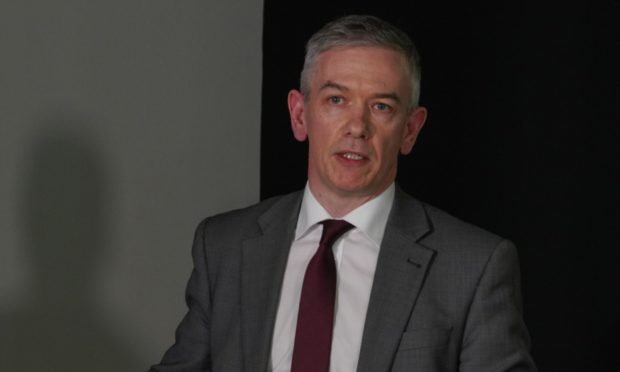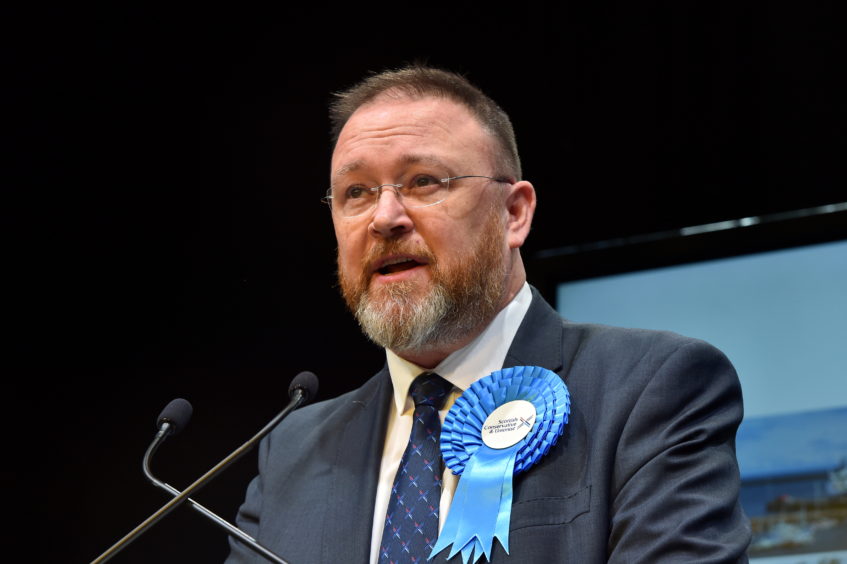Scotland’s chief medical officer expects a gap between testing capacity and the number actually being carried out to continue to grow as the government ramps up its test, trace and isolate strategy.
Scottish officials have faced scrutiny over why the number of tests remains so far below the capacity available in labs across the country, and there have been calls for unused resources to be diverted to care homes.
The Scottish Government said in a report published last week it hopes to reach a capacity of 15,500 tests but has carried out an average of just 1,792 tests per day over the past week.
Dr Gregor Smith said it was “inevitable” there would be a gap between the demand led by clinicians seeking tests for their patients and the significantly higher level of testing required to facilitate a test, trace and isolate approach.
He reported there had been an overall decline in the number of individuals seeking a test as lockdown measures continue to slow the spread of the virus.
“Deciding to ask for a test – for a clinician – needs to answer a clinical question, it needs to help a clinician decide the next course of action,” he said.
“That’s the usefulness of a test. What we’re seeing at this stage is that there has certainly been a gradual decline in the number of people who are presenting with symptoms that need tested in that sense.”
First Minister Nicola Sturgeon was asked at her daily briefing why people in Scotland are currently waiting around 30 hours to receive the results of their test, when other countries are able to do it in four.
Ms Sturgeon said the turnaround time for tests was “very important” and discussions had been ongoing with labs about how to reduce the length of time taken between a patient identifying symptoms to them receiving results.
The first minister also stressed that the Scottish Government’s testing strategy was being driven by “clinical priorities” while it builds up enough capacity to roll out the test, trace and isolate method.
“There will always be a mismatch between capacity and usage – for good reasons, because of the variation in demand,” she said.
“We’re also potentially seeing a decline in community transmission of the virus.
“So some groups who were perhaps experiencing symptoms and coming forward for testing – perhaps key workers – there is less demand there now.
“But we are increasing it in other areas, like in care homes, so there is a daily effort to make sure everybody who requires testing is tested and that we use that capacity as fully as is necessary.
“We need to have capacity growing and therefore we may have capacity at the moment that is growing faster than our demand because we are building towards a test, trace, isolate system which will need more capacity than we are using right now.”
Meanwhile, Banff and Buchan MP David Duguid called for “lessons to be learned” from problems with the roll-out of mobile testing for Covid-19 in his constituency.
Mr Duguid raised concerns with the defence secretary Ben Wallace via video-link during a virtual session in the House of Commons.
UK Armed Forces personnel manned the testing station in Peterhead last week, working in partnership with the UK Government department for health and social care and NHS Scotland.
The facility did not open on the day that was advertised, despite an online system allowing people with symptoms to book appointments in advance.
There was further confusion with the published location of the site, while residents made further complaints about poor communication.
Mr Duguid said: “Can my right honourable friend tell me what discussions he has had with the department for health and social care and the devolved administrations on the effectiveness of those MoD testing facilities and will he meet with me, at least virtually, to discuss specific issues we’ve had in my own constituency in Peterhead?”
In response, Mr Wallace said the problems at Peterhead were an “isolated incident” and the digital portal should have not remained open to people to make appointments when the facility was not going to be open on the first day.
He added all those who had made appointments for the Saturday were seen on Monday May 4.

